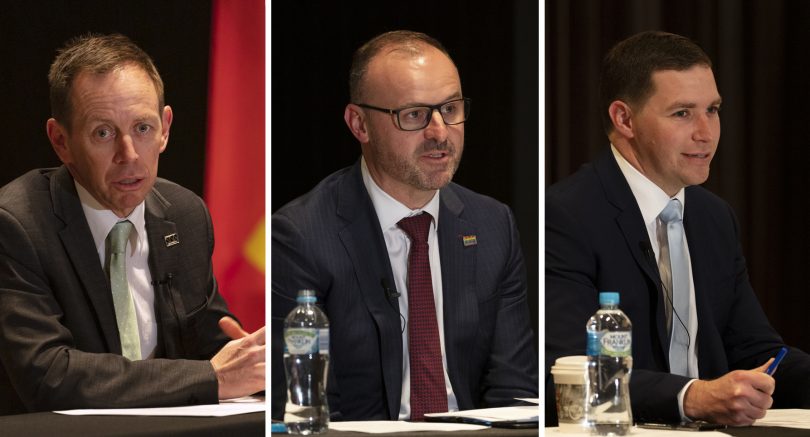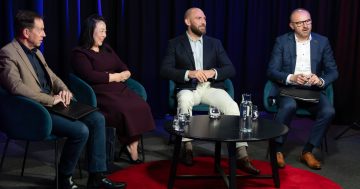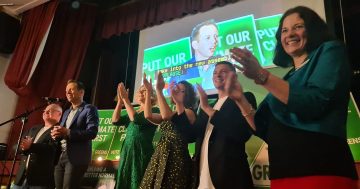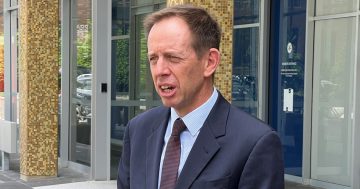
Zoya Patel says with the ACT election looming, her apathy has taken on an even more bitter tinge. Photo: Thomas Lucraft.
I remember a time when elections, both state/territory and federal, would create a surge of energy in the community. Like the revival of a stale marriage, suddenly politicians were interested again in their voters, wooing us with fancy new policies, and promises of playgrounds and funding for swimming pools.
The first election I got to vote in was the 2007 federal election, where I (and many other Australians) was caught up in the heady promise from Kevin Rudd of a progressive change, away from the long, monotonous 11 years of John Howard. I ate my (vegan) democracy sausage with pride that year, and wore my ‘I Voted’ sticker like the badge of honour it was.
Fast forward to today, and after the political upheavals and constant disappointments of the past political decade (for voters with my predilections anyway), the prospect of October’s ACT election leaves me cold and cynical. I drive past the avenues of corflutes thinking how, aside from the currently elected, I don’t know a single thing about any candidate and I’m not sure that I care to find out.
I read policy announcements with a cold detachment, and an overwhelming sense of ‘what does it matter, they’ll just do whatever they want when they’re elected anyway’. My sense of agency in a democratic system has been marred, and I have to wonder if it’s because I’m no longer in the comfortable majority with my views – is this how other people have felt all along?
After the Tony Abbott victory in 2013, it felt like every election, Australian and international, replicated the same feeling of disappointment and gloom. By the time Trump was elected in 2016, I didn’t even have enough interest to feign the tragedy and frustration my left-wing peers felt. And last year, with the shocking (to me, anyway) election of Scott Morrison, I felt more resigned than ever. It seemed to me that the political tone across western democracies was tending further to the right, and my politics was back on the sidelines. Instead of being galvanised for change, I renewed my Netflix subscription and tuned out.
Now, with the ACT election looming, my apathy has taken on an even more bitter tinge. You would think that as a left-wing voter, I would feel in my element in the Territory where the Labor party has reigned for 19 years and it feels hugely unlikely that Alistair Coe will be the Liberal to lead his party to their first election victory in almost two decades.
But instead, the prospect of more of the same, unchallenged and therefore unending, fills me with dread. Does incumbency for such a long period of time lead to complacency? Is there any genuine power left in a democracy where the current Government can feel fairly smug in their likelihood of remaining in power, leaving them with little impetus to woo the public?
ACT Election Round-Up
Perhaps the issue is that there isn’t the same sense of a big election issue, a single principle to debate on, a line drawn in the sand to guide our voting one way or the other. When the options are more clearly different (Trump v Hilary), it’s easier to feel connected to one side or the other because the gulf between them is significant. In Australia, the two sides look alarmingly similar, so the choice feels less distinct – there are radicals on both sides, but the leadership of both parties is always safely in the centre for the most part.
Is political apathy the inevitable outcome of a frustratingly immovable two-party system? Is a democratic system ever capable of leading to genuine, revolutionary change when needed? Or am I alone in my democratic depression?















